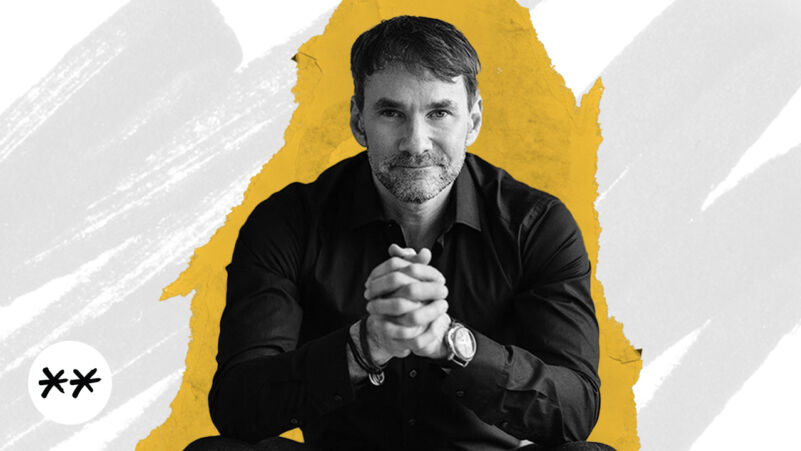Quick Summary
Keith Ferrazzi, founder of Ferrazzi Greenlight, is a pioneering executive coach, thought leader, and New York Times #1 bestselling author. For over two decades, he’s transformed Fortune 500 companies, unicorn startups, and governments by challenging teams to break silos and embrace “teamship” over leadership.
In this episode, Dominic explores innovative collaboration methods such as co-elevation and constructive conflict, the need for a shift from individual resilience to collective team resilience and the potential of AI in shaping future team structures. Keith shares anecdotes from coaching executive teams and the insights gained from his research on high-performing teams, highlighting the importance of collaboration, feedback, and a culture of candour in achieving team success. Hear his thoughts about moving away from traditional hierarchical models to more fluid, self-managed teams, advocating for a culture of openness and shared responsibility.
Takeaways
-
From leadership to teamship – Shift to shared accountability and self-managed teams.
-
Radical candour wins – Embrace honest feedback to build trust and drive results.
-
Work async and agile – Use sprints and async tools to move faster and smarter.
-
Break the org chart – Build cross-functional teams around goals, not hierarchy.
As the leader of the Greenlight Research Institute, Keith drives innovation in team performance and collaboration. His Radical Innovators Collaborative unites bold thinkers for groundbreaking ideas and best practices. A prolific writer featured in Harvard Business Review, Forbes, The Wall Street Journal, and more, Keith’s books include Never Eat Alone, Leading Without Authority, and the cutting-edge Never Lead Alone. In 2024, he received the prestigious Coaches 50 Award, honouring the world’s top executive coaches. Beyond coaching, he’s a philanthropist and strategic investor committed to driving meaningful social impact.
Discover
Shift from Leadership to Teamship – Leaders are encouraged to empower their teams to self-manage rather than controlling or micromanaging by transitioning from a traditional leadership model to “teamship” – where responsibility is shared across the team. This helps dismantle silos within organisations, fostering collective accountability and better performance.
Candour Over Conflict Avoidance – Radical transparency and open feedback are critical for high-performing teams. Avoiding conflict often leads to mediocrity, while embracing candid and constructive feedback leads to innovation and trust. Practical tools like “candour breaks” and stress testing enable teams to comfortably critique ideas and improve collaboration.
Asynchronous Collaboration and Agile Practices – Traditional meeting-centric collaboration methods are inefficient. Harnessing asynchronous collaboration (e.g., collecting input via shared documents) and agile sprints can make decision-making faster and more inclusive. This modern approach aligns team efforts around Key Performance Indicators (KPIs) and prevents siloed working.
Redefining Teams Beyond Org Charts – Teams aren’t merely those on the organisational chart. Instead, they should be built dynamically around specific goals or KPIs. For example, solving a sales issue may require involvement from marketing, product, and finance—not just the sales department. This approach reduces finger-pointing and fosters cross-functional ownership.
Practices for Building Resilient and Celebratory Teams – High-performing teams focus not only on achieving results but also on maintaining team well-being. Practices like monthly “energy checks” ensure team members support one another during challenging times. Additionally, celebrating successes creates a culture of positivity and enhances morale. Peer-to-peer recognition is particularly impactful and energising.
Book recommendations:
Andrew McAfee – The Geek Way
Peter Diamandis and Steven Kotler – Abundance: The Future is Better Than You Think
Keith’s book Never Lead Alone is out now
Dominic’s book Mind Your F**king Business is out now

